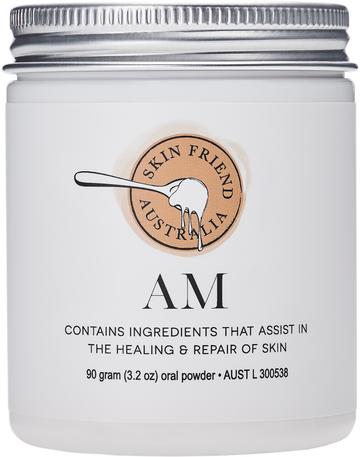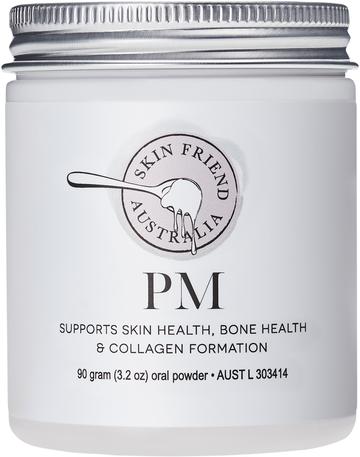Gut feelings: what happens when your microflora is out of balance?

This article is a part of our blog series which focuses on gut health and how you can treat digestive complaints whilst also healing your eczema.
Microbiota or microflora?
Digestive health is a hot topic with increasing evidence revealing the part it plays in our overall health and wellbeing.
The gut microbiota or ‘microflora’ (yes it's the same thing) are the names given to the community of microbes living in our digestive tract (yes microbes live in our gut). There is an increasing amount of evidence to support the role our diet and lifestyle plays in the health of our digestive system and gut microbiota.
- Babies are born without microflora.
- Microbiota is established by age 3, however as we age, factors like where we live, diet, drugs such as antibiotics, alcohol and stress can all destroy our gut flora.
- Did you know there are actually 10 times more microbes within the gastrointestinal tract in humans then there are cells in our body?
- Over 1000 trillion bacteria can exist in our guts, with the majority mainly inhabiting our large bowel (or colon).
- You may have heard them be referred to as ‘good’ or ‘bad’ bacteria, because these different microbes can either produce compounds that both positively or negatively influence our health.
Healthy gut microflora is involved in:
- stimulating our immune system,
- producing vitamins such as the ‘B vitamins’ and ‘vitamin K’,
- preventing bacteria growth,
- aiding digestion,
- aiding the absorption of nutrients,
- producing short chain fatty acids
- and improving our gut function and motility. (Myers, 2004)
What happens when bad microflora take over?
When the balance between good and bad bacteria shifts towards predominantly bad bacteria, gut dysbiosis develops. Now with the bad guys having the upper hand, this imbalance can allow for different conditions to develop such as candida and intestinal impermeability (that’s the medical term but you may know it as ‘leaky gut’).
These altered states have growing evidence, which show their involvement in the development of conditions such as:
- celiac disease,
- IBS and inflammatory bowel disease,
- heart disease,
- liver disease,
- autism,
- asthma,
- allergies
- and obesity.

If you are experiencing digestive issues, see if you have any of the following symptoms that can indicate your gut flora is out of balance.
8 SIGNS you may have gut flora imbalance:
- Gas
- Bloating
- Altered bowel movements
- Dermatitis
- Malabsorption problems
- Food sensitivities
- Impaired immune system
- Abdominal pain

Can salicylates cause eczema and leaky gut?
Research shows that salicylate intolerance can aggravate the gut lining and these salicylate sensitive individuals experience symptoms such as reflux, constipation, diarrhoea, IBS symptoms, eczema and mental disturbances including depression, anxiety and aggressive behaviour (ref).
For some eczema sufferers who also experience digestive complaints, following a low salicylate diet (as part of your eczema healing) can not only help to heal your eczema and other skin conditions, but may also work on healing your digestive issues.
Evidence has shown that intolerance to salicylates may create production of cytenyil leukotrienes, which increases vascular permeability (leaky gut).
Many people will actually find relief of digestive complaints when switching to a low salicylate diet, however, others may still continue to experience digestive issues, so you need to investigate further if this is the case for you.
For my patients who have signs of gut flora imbalance, I prescribe a supplement to help heal the gut lining (Skin Friend AM) plus a course of dairy-free plain probiotics (strictly no flavourings, dairy or fruit extracts as these can worsen eczema).
Probiotics
While I love the idea of probiotics and I often recommend them to my patients after they have taken a course of antibiotics, probiotics are not right for everyone. Many eczema sufferers have reported they adversely react to probiotics (they get more itchy, and their eczema worsens) but they keep taking them as everyone says they are good for eczema.
That's not always the case...
Probiotics contain amines (histamines) so they are not suitable for people with amine sensitivity. More than 35% of the eczema population adversely react to amines according to research by Loblay and Swain so in these people probiotics can worsen eczema, so I do amine testing before prescribing probiotics.
So if your gut feeling says your skin is worsening on probiotics, do stop taking them, your gut is right.
Glutamine - don't take it for eczema
If you do not have eczema, and just have gut symptoms, glutamine can be a useful treatment if taken for a couple of weeks. I give glutamine to my son when he has tummy pains, as he has a range of food sensitivities which upset his stomach (and he does not have eczema).
Note that glutamine is not usually suitable for people with eczema as it can worsen eczema and it dries out your skin so if you have oily or normal skin, glutamine is the treatment for you. I
If you have eczema, it is better to use Skin Friend AM to heal the gut lining and it can be used to successfully treat eczema and acne. It's gentle, so it can take a 1-3 months to get the maximum effect but you'll quickly notice your skin feels softer.
Feel free to post a comment or a question below, as our trained staff from the Eczema Life Clinic can help with eczema and gut health inquiries.
Click here to view all Gut health blogs
Products
At Eczema Life, we recommend nutritionist Karen Fischer's low food chemical program (The Eczema Detox) along with additive-free supplements for skin health and wellbeing. Click on the images to view more details:
Supporting research
Aziz, Q., Doré, J., Emmanuel, A., Guarner, F. and Quigley, E.M.M., 2013. Gut microbiota and gastrointestinal health: current concepts and future directions. Neurogastroenterology & Motility, 25(1), pp.4-15
Bischoff, S.C., 2011. 'Gut health': a new objective in medicine?. BMC medicine, 9(1), p.24.
Carding, S., Verbeke, K., Vipond, D.T., Corfe, B.M. and Owen, L.J., 2015. Dysbiosis of the gut microbiota in disease. Microbial ecology in health and disease, 26(1), p.26191.
Cuomo, R., Andreozzi, P., Zito, F.P., Passananti, V., De Carlo, G. and Sarnelli, G., 2014. Irritable bowel syndrome and food interaction. World Journal of Gastroenterology: WJG, 20(27), p.8837.
Kobayashi, T., Glatz, M., Horiuchi, K., Kawasaki, H., Akiyama, H., Kaplan, D.H., Kong, H.H., Amagai, M. and Nagao, K., 2015. Dysbiosis and Staphylococcus aureus colonization drives inflammation in atopic dermatitis. Immunity, 42(4), pp.756-766.
Myers, S.P., 2004. The causes of intestinal dysbiosis: a review. Altern Med Rev, 9(2), pp.180-197.
Zhang, Y.J., Li, S., Gan, R.Y., Zhou, T., Xu, D.P. and Li, H.B., 2015. Impacts of gut bacteria on human health and diseases. International journal of molecular sciences, 16(4), pp.7493-7519.






